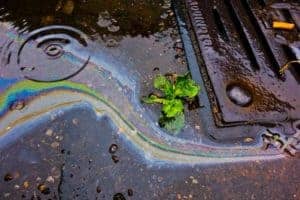National Water Quality Month
 For many, August is best known for hot weather, heading back to school, and the end of summer. As we cool down and cool off, let’s note that it’s also National Water Quality month. Read on to learn more about the concerns, challenges and initiatives to preserve and protect this amazing resource that cools and sustains us.
For many, August is best known for hot weather, heading back to school, and the end of summer. As we cool down and cool off, let’s note that it’s also National Water Quality month. Read on to learn more about the concerns, challenges and initiatives to preserve and protect this amazing resource that cools and sustains us.
 Did you know?
Did you know?
- 40% of the rivers and 46% of the lakes in America are polluted and are considered unhealthy for swimming, fishing, or aquatic life.
- In China, it’s closer to 70%, with water unfit for human consumption or contact.
- Each year, 12 trillion gallons of untreated sewage, storm water and industrial waste are dumped into US water.
- Globally, 14 Billion pounds of garbage, mostly plastic, are dumped into the ocean every year.
- Water pollution is the major cause of various diseases like cholera and typhoid.
- More than 3000 children globally die every day due to consumption of contaminated drinking water.
- 15 million children under the age of 5 die each year because of diseases caused by drinking water.
- Every year, more people die from unsafe water than from all forms of violence combined, including war.
EPA Leading the Way in the U.S.
Goal:
Improve surface water quality and its impacts on drinking water.
How:
Improve industrial compliance with the Clean Water and Safe Drinking Water Acts, discharge permits and cut illegal pollution discharges, working in partnership with authorized States.
Progress is tracked and updated progress reports are available here: https://www.epa.gov/ccr

What Can Everyday Consumers Do to Help?
 Don’t add to the problem!
Don’t add to the problem!
- Don’t pour cooking oil or household chemicals down the drain and don’t flush medications (pills, powders, liquids) down the toilet
- Check with your local town government for the proper way to dispose of them
- Don’t use the toilet as a wastebasket for tissues, wrappers, dust cloths or other paper goods
- Use the minimum amount of laundry detergent and/or bleach and opt for phosphate free products
- Minimize the use of pesticides, herbicides and fertilizer. Never dispose of these or any chemicals near a sanitary or storm sewer system.
- If you have a sump pump, check to ensure it doesn’t drain into a sanitary sewer system.
 Conserve water usage
Conserve water usage
- Install a water efficient toilet
- Run the washing machine or dishwasher only when full

Small Company, Big Impact
Hoffer Plastics, honored as winner of the Illinois Governor’s Sustainability Award, has been quietly and successfully making a positive impact on both water quality and reduced water consumption.
- The company sets ambitious goals, including reducing total water consumption by 50% over the next few years. Progress is measured, tracked and communicated via an annual Sustainability Report.
- Some of the innovative approaches Hoffer Plastics has implemented:
- Selecting an in-line, (full stream), self-cleaning, filtration device to reduce water discharged from its cooling towers, and retrofitting it to recapture and reuse all flushed water
- Implementing several revised water treatment programs that had a dual impact of preventing scale and corrosion of cooling tower equipment while eliminating over 50,000 lbs. of hazardous, corrosive materials annually
- Installing a brine reclaim controller on its water softening system that both reduced salt usage and reduced water usage by 100,000 gallons annually.
